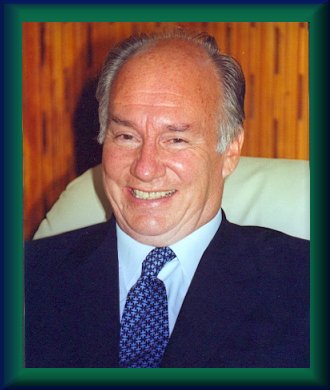
Gouvieux, France, July 2007
Posted: 10 Jul 2007 12:37 PM CDT
http://www.akdn.org/goldenjubilee/

Since ascending to the Imamat in 1957, His Highness Prince Karim Aga Khan has developed a global network of institutions. These institutions, operating under the Aga Khan Development Network (AKDN), work to improve living conditions and opportunities for people regardless of their faith. Under His Highness, professional staff and selfless volunteers in large numbers, work to transform lives through these institutions.
Sir Sultan Mahomed Shah Aga Khan III founded organisations that addressed the conditions of the first half of the 20th century, when much of the Ismaili community lived under colonialism. This institutional structure has evolved and expanded remarkably under His Highness the Aga Khan. He has formalised, consolidated and reoriented existing organisations and has established many new ones. Aga Khan Development Network (AKDN) agencies deal with the development needs of people regardless of their faiths. The Network is an endeavour of the Ismaili Imamat to realise the social conscience of Islam. It brings together organisations and programmes that seek to relieve society of ignorance, disease and deprivation. In societies where there is a significant presence of Muslims, it also seeks to revitalise and broaden the understanding of Islam’s pluralist cultural heritage.
AKDN’s mandate derives from the ethics of Islam which aim for a balance between the material and the spiritual. Islam’s ethical ideal is to enable each person to live up to the exalted status of the being in whom Allah has breathed His spirit. Allah made all that is in the heavens and the earth an object of trust for human beings. Therefore, worship is incomplete without an active social conscience. By grounding societal values in the principle of moral responsibility, Islam lifts the social order to a spiritual level.
“To the Imamat the meaning of ‘quality of life’ extends to the entire ethical and social context in which people live, and not only to their material well-being measured over generation after generation. Consequently, the Imamat’s is a holistic vision of development, as is prescribed by the faith of Islam. It is about investing in people, in their pluralism, in their intellectual pursuit, and search for new and useful knowledge, just as much as in material resources. But it is also about investing with a social conscience inspired by the ethics of Islam. It is work that benefits all, regardless of gender, ethnicity, religion, nationality or background. Does the Holy Qur’an not say in one of the most inspiring references to mankind, that Allah has created all mankind from one soul?” His Highness Prince Karim Aga Khan
The Imamat’s vast institutional network addresses the needs of the poor, particularly in Asia and Africa . AKDN organisations are structured broadly under three categories: Economic Development, Social Development and Culture. The Network’s long experience in engaging with social and economic development has drawn governments to it for policy advice and partnership. The Ismaili Imamat and AKDN have formalised frameworks for their development initiatives by entering into internationally recognised Protocols, Agreements of Cooperation, Memoranda of Understanding or Letters of Intent with many national governments and international organisations. These serve to strengthen and formalise the Imamat’s and AKDN’s international partnerships, relationships and long term commitments in the countries and regions within which they work.
AKDN adopts a comprehensive strategy to help people move out of poverty and enable them to participate in the social and economic mainstream. It is guided by a philosophy of human dignity and self-reliance. For development to be sustainable over the long term, local people are engaged in planning and development. This requires projects to be inclusive and respectful of the pluralism of societies. Additionally, encouraging the recognition of merit promotes excellence and continual improvement in standards.
The provision of quality education is the cornerstone of AKDN’s approach to uplifting the human condition. This view emerges from the teachings of Prophet Muhammad and Hazrat Ali that inspired Imam al-Mu’izz’s establishment of Al Azhar University, one of the oldest in the world. The global network of AKDN’s educational institutions, including pre-schools, Aga Khan Academies, Aga Khan University (AKU) and University of Central Asia, is a testament to Prince Karim Aga Khan’s conviction that knowledge is vital to the fulfilment of individuals and betterment of society.
Addressing AKDN’s social development mandate, Aga Khan Foundation’s programmes incorporate education, health care, environmental safeguards, revitalisation of cultural assets, as well as the development of appropriate infrastructure, rural support and income generation opportunities. Aga Khan Agency for Microfinance’s not-for-profit programmes, which provide small loans to the poor and the less fortunate, constitute a critical building block for an equitable civil society.
The Aga Khan Fund for Economic Development is the only for-profit agency of the Network. Its innovative socio-economic agenda, based on the AKDN’s strong ethical framework, promotes public and private sector partnership in which investment decisions are primarily based on prospects for improving lives. Taking bold but well-considered steps to invest in economies that are fragile and complex, it has assisted in the rehabilitation of countries after war or internal turmoil in places as varied as Afghanistan , Bangladesh , Mozambique , Tajikistan and Uganda .
To complete the picture, architecture, urban revitalisation and traditional music are the responsibility of the Aga Khan Trust for Culture. It focuses on culture as a means of enhancing the physical, social and economic regeneration of Muslim communities. It runs the Aga Khan Award for Architecture, the Aga Khan Music Initiative in Central Asia, the Historic Cities Programme, and various education and culture programmes including the Aga Khan Program for Islamic Architecture at Harvard University and Massachusetts Institute of Technology.
The Golden Jubilee will witness various new initiatives, which will undoubtedly come to be seen by future generations as part of Prince Aga Khan’s unique legacy. (Article submitted by Dr Mir Afzal Tajik)